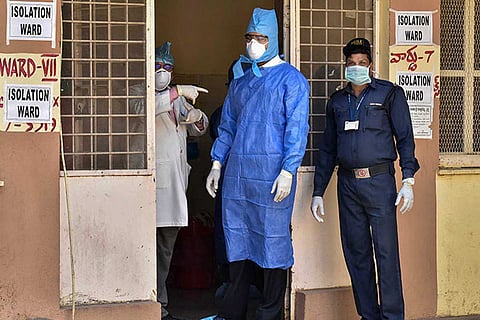

On May 7, the Karnataka government issued an order directing Bengaluru’s civic body Bruhat Bengaluru Mahanagara Palike (BBMP) to form a Ward Decentralised Triage and Emergency Response Committee also known as DETER, for COVID-19 management across the 198 wards in the city. The orders from the government arrived at a time when COVID-19 cases in Bengaluru were surging rapidly. The government, in their order, said that ward-level management of the pandemic was essential. These committees would be the primary point of contact for those who need assistance and have no access to healthcare services.
The ward committees were entrusted with identifying all the residents’ welfare associations, apartments, slums, non-governmental organisations working with the government and also medical professionals in their ward. They also were entrusted with the establishment of COVID care centres and triage centres. The ward committees would also have vulnerable persons in the given ward. They had to lay all the ground plan with the volunteers and also ready training materials for ASHA workers, BBMP staff. Meanwhile, the ward offices would act as war rooms for the respective ward.
So how well are these committees faring? Srinivas Alavilli of Janaagraha, a Bengaluru-based non-profit working on urban governance issues, said that it has helped the people, especially those who have no access to healthcare but are from vulnerable sections. However, he added that it was still early to determine the success of the new system, adding that it has had a positive impact to an extent and elicited positive responses from citizens as well.
The decentralisation of COVID response has been a long-standing demand of civil society, and several people have lauded the move to form these DETER committees. Srinivas Alavilli said, “We have been working with the BBMP towards creating a long-term decentralised form of governance so that there is more outreach to people. Under the Disaster Management Act, these ward committees can act as Ward Disaster Management Committees. The idea in establishing these DETER committees is that every ward will have their own war rooms that can help people receive timely assistance which would improve the management of the COVID-19 management in the city.”
The ward committees in Bengaluru have been converted into Ward disaster management committees under Section 24 of the Disaster Management Act. The war rooms will assist in connecting the people from a particular ward to the resources, the doctors and nurses at the triage centres will ensure that the patient is physically triaged and given medication.
Until May 18, the BBMP had set up 32 triage centres across Bengaluru of which 26 were already functioning and had catered to over 400 people in the city, said the civic body in their press statement.
Who is my ward nodal officer?
— Srinivas Alavilli (@srinualavilli) May 20, 2021
Is there a COVID triage center in my ward? If not, where is the nearest one? And what exactly is my ward? If you have such questions, here’s a portal that might be useful to you! https://t.co/hlV4lm8N78 all 48 triage centres mapped plus useful info pic.twitter.com/uVuwtHY00b
Tara Krishnaswamy of Citizens for Bengaluru also lauded the initiative, and said that branching out in the front-end prevents a single channel from getting blocked. However, she also stressed that at the backend, there should be a centralised system. “There is no real-time data available for the decentralised war rooms to rely on. Moreover, there is no centralised system where all the data inputs are managed and the ward-level offices can call to. Having branched sources like triage centres at ward-level will be fruitful if there is one source and real-time data available in the backend that ward-level volunteers can rely on,” she said.
Dr Nagaraja NT, a Senior Medical Officer with World Health Organisation, said that having ward-level committees will ensure an efficient primary healthcare system amid the pandemic, and subsequently instil a sense of comfort among people since they are in contact with known persons. He said that the recommendations were made for long-term changes beginning with the COVID-19 pandemic. “Moreover, when there is community involvement, it becomes easier to deliver services, foster care for the patients and reach is better. Community participation can also be used for vaccination like India did during the pulse polio vaccination drive,” he said.
Both Srinivas and Tara highlighted that there needs to be more awareness created about the decentralised system, and that there still are people who are at large uninformed about the decentralised committees and the triage centres. “People still at large do not know about the triage centres. This causes them to scramble for medical assistance when the condition has worsened and that defeats the purpose. If people are made aware of the ward-level centres and there is a centralised system for the ward committees to contact, it would help improve the efficiency,” said Tara.